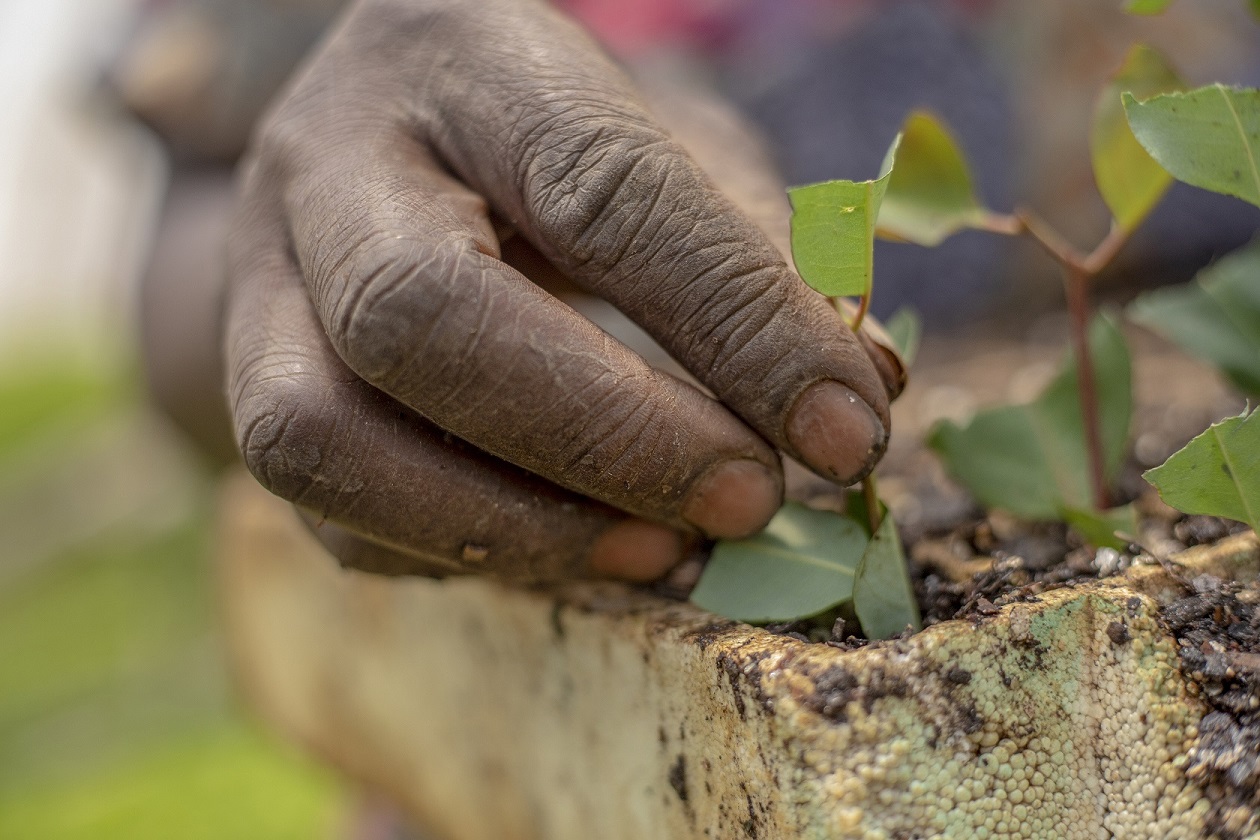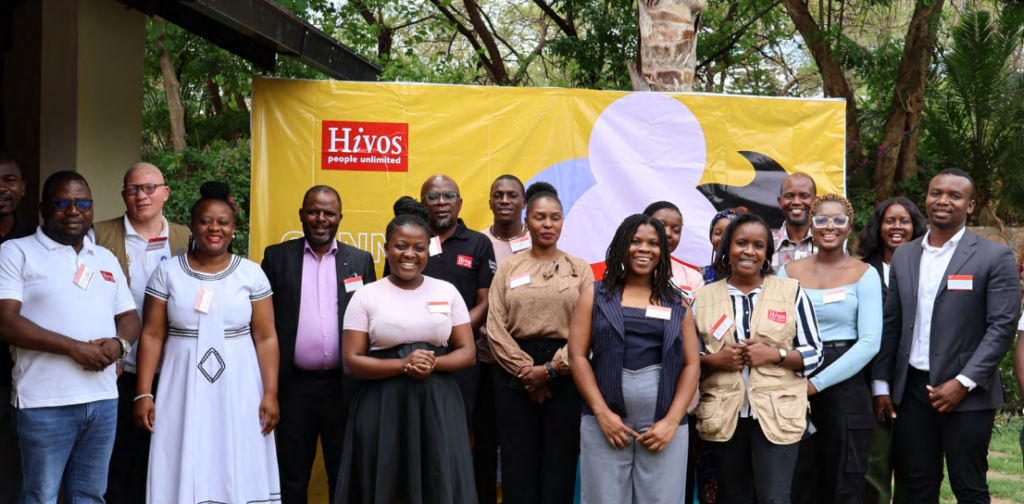AWCFS: Employees are happier at Fairtrade certified farms
By Joyce Chimbi. This article was first published on Kenyan Woman, a monthly online newspaper produced by the Women@Work Campaign partner African Woman and Child Feature Service.
Women working in flower farms that are Fairtrade certified are doing much better than their counterparts in establishments that are not. This emerged during the shooting of Ms President, a Media Focus on Africa reality TV program that showcases women’s leadership skills in Naivasha.
Women drawn from five flower farms attended the shooting and narrated their work experiences. What stood out was the difference that a Fairtrade certificate can make in the lives of struggling women.
Four of the remaining contestants in the program took their hunt for ‘votes’ to Naivasha where at least 70 women drawn from a variety of flower farms gathered. The main objective was for the contestants to articulate various ways in which they could address the plight of women engaged in hardship socio-economies, given a chance to lead.
“There are more women working in flower farms than men. But in general, it does not matter which farm employs you. We face many similar problems. However, farms that are Fairtrade certified are much better than those that are not,” said Angela Atieno.
Clear guidelines
Fairtrade standards are a set of clear guidelines that seek to improve workers’ rights, commercial interests of a company and the local environment.
“I work for Florensa flower farm which is Fairtrade certified. We have problems but we also have many benefits. For example, you cannot be dismissed from employment without a procedure,” Atieno said.
Across all flower farms, a worker needs three written warnings in a year to be dismissed. In flower farms that are certified, warnings are not issued flippantly.
“For us who are not certified, you can report to work today and be sent home immediately without warning,” said Grace Wangui.
Nonetheless, they all confirmed that an issued written warning expires after one year if no other warning has been issued.
Atieno said while their wages are still not in tandem with government-approved basic wages, Florensa workers are generally paid slightly higher than their counterparts.
Work progression
“In our company, you start as a casual, then seasonal and then you become permanent. As long as your work is good, you will easily progress,” she says.
Mary Simiyu says that the more common narrative is that a woman will most likely remain as a casual laborer earning Sh50 to Sh100 a day if they do not ‘enhance’ their application for a permanent position with sexual favors.
“All these women can tell you that the reality is that without some form of favor, you will most likely be bypassed by some of these really bad supervisors,” she explains.
Atieno said sexual harassment is rare in the company she works for and that merit is what determines the progression of a worker.
“I am a single mother and I have enjoyed many benefits that we get from being Fairtrade certified. Our company offers education bursaries to its employees. I first applied for a bursary when I was a seasonal worker. Today I am a permanent worker and the company is giving me bursaries for three of my children in secondary school,” Atieno said.
The companies that are certified make more money than those that are not.
“The proof is in the benefits that we get. What we do is hard labor and the money is not enough, but we get something in addition to our salary.’’
Labor strategy
The implementation, in 2015 of the new Fairtrade Hired Labour Strategy and Trader Standard is clearly bearing fruit. Once standards set by Fairtrade are met, it is clear from the testimony of workers that they will indeed improve the sustainability of the farms, the quality of the working environment and most importantly, what workers take home.
“Bursaries are open to all workers with children in secondary school. If a child performs well and joins university then the company takes on the full financial responsibility for that child. There are instances where they absorb these graduates, so it is a very important opportunity,” she said.
“We are about 800 workers but if you apply for bursary early enough and provide a complete academic profile of your child, you will succeed. This is an open opportunity to all of us,” Atieno added.
Fairtrade farms receive what is known as Fairtrade Premium on top of the commercial price for their products. This premium is invested in a range of social projects to improve the livelihoods of their workforce.
Atieno confirmed that this was the case at her flower farm. “At the end of the year, we get gifts … we all received ‘meko’ cookers complete and ready to use. This year we all received brand new quality mattresses. This gives us strength and confirms to us that our work is valued.”
“Some of the workers live close to the farm so they dash home to eat every day at lunch break. Others live far away. The company has a canteen and a plate goes for Sh30. You actually just get a voucher and money is deducted from your paycheck at the end of the month.”
The company subsidizes half the price of the food. This means in a month a person eating every day at the canteen will need to pay Sh150.
Needless to say, staff turnover at Florensa flower farm is much lower compared to other farms.
*Names have been changed to protect the identity of sources.




